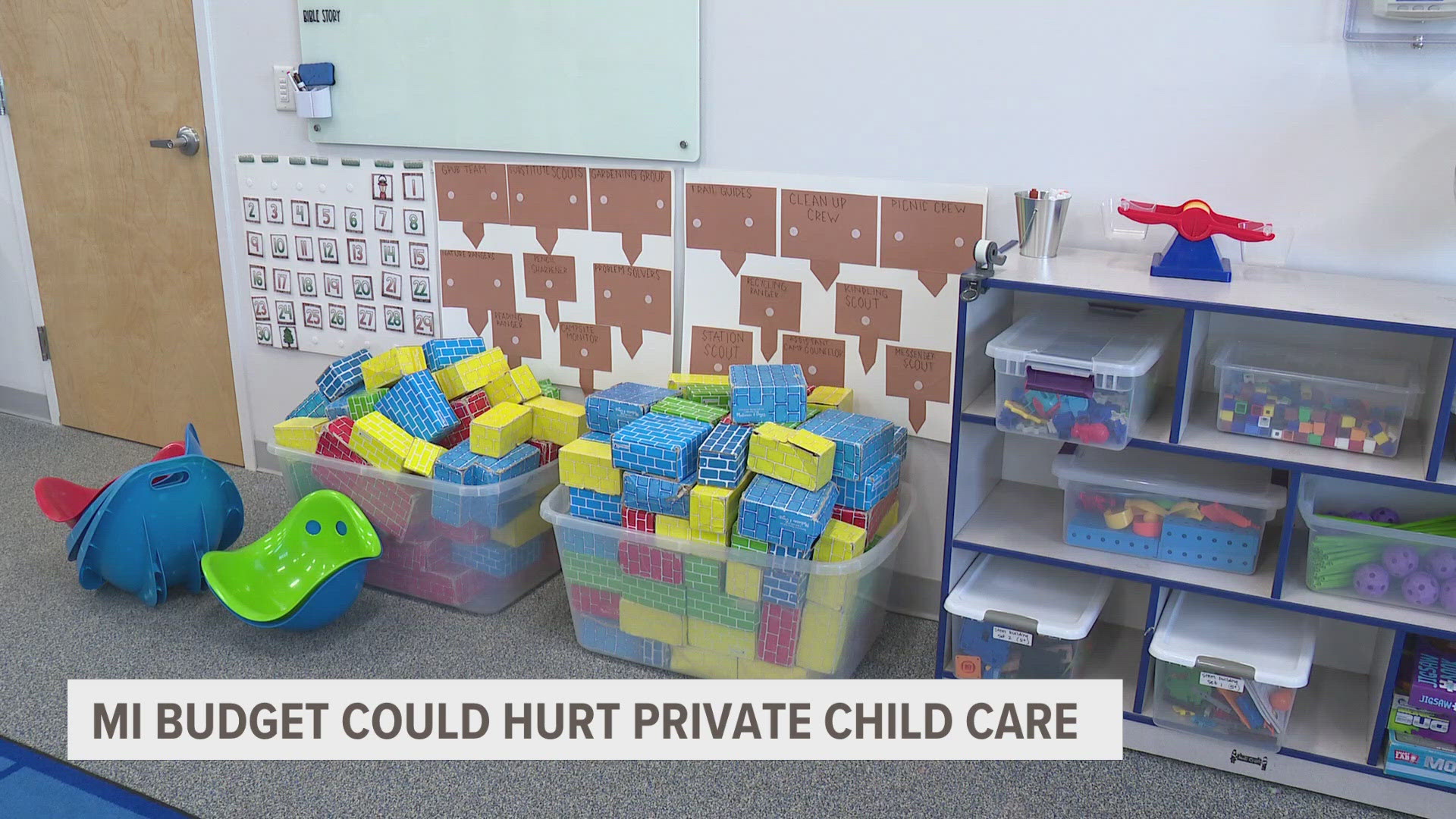GRAND RAPIDS, Mich — Governor Gretchen Whitmer is advocating for free preschool for all Michigan families.
Under her administration's proposal, millions of dollars would expand state-funded pre-K and put more resources into local childcare providers.
However, some providers said House and Senate budget language is having a negative effect.
"The House and the Senate language as proposed is pretty concerning," said Jessica White-Hatinger, director of operations of Big Steps, Little Feet, an early learning center in Ada. "They both deeply impact an already stressed industry."
She said the language is not in line with what the Governor was calling for in her proposal.
Business leaders said in the House, the budget removes a requirement for at least 30% of the Great Start Readiness Program (GSRP) allocation to go to private childcare providers.
"It doesn't unite our industry," said White-Hatinger, "because it's showing that only preschool teachers, their work, is what's valuable. It doesn't highlight the work of the infant and toddler teachers."
Meanwhile, Marcus Keech, the director of government affairs with the Grand Rapids Chamber of Commerce, said this issue takes away the partnership of providers within ISDs or school districts and privately-owned providers, making them competitors.
"You're going to see providers potentially have to close their doors because they don't have that resource," said Keech. "And so, the accessibility will decrease for the average family in West Michigan"
Keech said the issue within the Senate's budget language has to do with salaries.
Within the budget, it would require community-based providers to pay teachers within the GSRP a salary no less than the average GSRP within the region. Meaning, it would require privately-owned providers to match salaries to providers receiving funds from the government.
"To have language in the proposed budget by the Senate that requires private providers to match salaries within the school systems that are within our prosperity region, we can't compete with that," said White-Hatinger. "Those public entities have multiple funding streams, as they should to support our children, but it's not comparable to a tuition-operated child care center."
Kecch said that will force providers to increase tuition. Rising costs of childcare, as well as access to a facility, is already a problem facing Michiganders and people across the country.
"560,000 children age six and lower in the state should have access to child care," said Keech. "And there's only currently child care available for 31% of that that population."
Access to affordable childcare is a major issue affecting the workforce as well. If a parent cannot afford to pay for childcare and go to work, they may leave the workforce.
Keech said a study by the Grand Rapids Chamber of Commerce showed Michigan is losing $2.88 billion a year because of a lack of child care. Of that, $2.3 billion is how much businesses are losing due to absenteeism and turnover. The rest the state is losing in tax revenue.
"We need to keep the 30% GSRP funding in the budget," said Keech. "And then on the Senate side, we understand that pay parity conversation, but we need to be understanding that we can't just blanket set a number without additional resources for these private providers to increase these salaries."
White-Hatinger encourages returning to conversations to fix these issues.
"So, let's continue that conversation House and Senate, re-look at the budget, take a moment and pump the brakes and consider Michigan's future," said White-Hatinger.
►Make it easy to keep up to date with more stories like this. Download the 13 ON YOUR SIDE app now.
Have a news tip? Email news@13onyourside.com, visit our Facebook page or Twitter. Subscribe to our YouTube channel.
Watch 13 ON YOUR SIDE for free on Roku, Amazon Fire TV Stick, Apple TV and on your phone.

